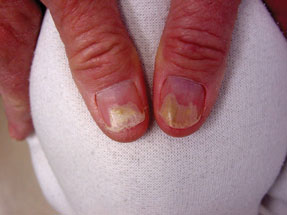Providing comfort in chaos is another kind of work-life balance
Residents must learn to maintain a delicate balance between their personal lives and professional roles when family or friends ask for medical advice.
A personal conversation between a medical resident (coauthor Harman S. Kular, MD, ACP Resident/Fellow Member) and his mother a few weeks ago started out normally. They shared updates from their lives and asked about loved ones. After a few minutes, however, his mother's words slowed and her tone changed. She paused before asking her son about a close friend of hers who had been admitted to the hospital with “some kind of breathing problem.”
Almost all medical trainees have experienced similar conversations. Some arise innocuously when loved ones mention either their or their friends' health problems in passing. Others, however, are more serious. As Dr. Kular listened to his mother describe the situation, he very quickly became concerned.
Her friend, a previously healthy 45-year-old woman, had been diagnosed several weeks prior with “bad pneumonia.” Worsening shortness of breath, however, had prompted her to seek re-evaluation. It ultimately landed her in the ED with acute respiratory failure and “big blood clots in her lungs.” Before long, she was in the ICU, intubated and on vasopressors.
Dr. Kular sat on the other end of the line listening to his mother struggle through the details. Soon, more substantive questions started emerging. Should her friend's family push to have her transferred to a larger medical center, perhaps the one where Dr. Kular was training? What could everyone expect going forward?
It quickly became clear to Dr. Kular that this was a situation in which his clinical knowledge would be of only partial help. In one sense, his mother was looking to him for objective information and a medical opinion about her friend's condition. But he knew that she wouldn't ultimately be comforted by information about APACHE scores and mean arterial pressures. In her questions about blood clots and ventilators, she was searching for affirmation. In her questions, she was also looking for reassurance and comfort.
To provide that, Dr. Kular felt, even if somewhat unintuitively, that he had to figuratively take off his white coat and shed his role as a physician. For the first time in his young career, he felt the need to “unbecome” a doctor enough in order to express the appropriate kind of compassion for his mother and her friend.
As part of graduate medical training, residents must learn to appropriately address and handle acute sickness. In situations involving catastrophic disease (e.g., in intensive care settings), this often requires them to absorb measures of emotion associated with illness while shielding themselves from its full weight. Balanced steadiness in the face of severe illness is crucial—a core competency in its own right—because remaining calm and collected in crisis is often as important to decision making as clinical acumen. Thankfully, most residents learn to find steadiness and focus amid chaos.
This steadiness, however, must also be thoughtfully directed. It is clearly helpful for young physicians who frequently spend long hours dealing with the sickest patients with the most complex medical and social problems. But increased exposure can also ingrain steadiness to the point where it progresses insidiously into something perceived as detachment, particularly by patients on the receiving end of bad news or poor prognoses.
This is not a new observation. Medical educators have been concerned for some time that the distance that results between doctor and patient—the cynicism and emotional insulation that germinate—can prevent illness from meaningfully moving and affecting residents as people. Finding balance in all of this, then, is difficult. What is a crucial protective mechanism can also prove detrimental.
As Dr. Kular learned, this tension can also extend into conversations with loved ones about catastrophic illness. It might appear that clinical experience clearly enables residents to empathize more fully with loved ones than nonphysicians could. In reality, however, the emotional distance that their work often demands from them can actually make that effort more difficult. The transition from speaking to patients to speaking with loved ones can prove paradoxically challenging. It can be hard to find the right expressions of care and vulnerability with loved ones after repeated efforts to insulate yourself from repeated encounters with suffering and death.
All of this creates the need for a different kind of work-life balance, one distinct from the balance physicians must strike between professional and personal pursuits. In conversations about others' severe illness, it's often unclear what loved ones expect from us: our professional input or personal support, or measures of both. Regardless, however, they will clearly respond poorly to detachment. We must learn to balance our roles as physicians with our roles as sons, daughters, siblings and friends.
Because of the intensity of graduate medical education, residency is a crucial time to begin building habits in this kind of balance. Not surprisingly, there are no easy answers here, but a few guiding principles can help. By actively pursuing better approaches for engaging sick patients with catastrophic disease, we can better understand how to talk with our own loved ones about others' illness. Conversely, thoughtful engagement of our loved ones in conversation can generate useful lessons for our work with ill patients and their families.
First, when talking with loved ones about someone's illness, it is can be helpful to pause before diving directly into the specifics of a given situation. It's understandable that new physicians who are actively learning the principles and applications of clinical medicine can feel compelled to act. It can seem like the right thing to do, particularly in acute settings when there is an unspoken pressure to do something, anything.
But a pause is crucial. It helps us remember that just as patients and their families may not always benefit from hearing all of the medical details, our loved ones may be searching for something beyond the specifics in their questions. Sensing this in his conversation with his mother, Dr. Kular answered his mother's medical questions but then moved quickly beyond them.
Second, it is equally prudent to be mindful of the opposite response of preserving such a steady balance and safe distance from a situation that our loved ones don't feel our support. As mentioned above, this is a posture that our intense clinical responsibilities can implicitly ingrain in us.
But as many residents have likely experienced, there are tangible drawbacks to being overly steady. There are situations in which patients and families need to feel our concern, to see us drop our guards and lean into the situation. This is especially true when they understand that there are no longer any curative or beneficial medical therapies available. In a similar way, there are times in conversation with our loved ones when we should maintain an objective stance. But there are others, like the one Dr. Kular experienced, in which the best thing we can do is recognize the gravity of the situation and support our loved ones by “unbecoming” doctors.
Knowing how to handle different scenarios is obviously challenging. But just as our medical training consists of other, similarly artful exercises, such as how to assess someone's fluid status, how to recognize early clinical deterioration, and how to differentiate nuances in changing mental status or electrocardiographic tracings, we should also actively and repeatedly exercise our judgment in situations dealing with severe illness.
It will take effort and time. But it will also pay dividends in a variety of patient care and personal conversations. Ultimately, it's the only way that we will acquire the perspective and the perceptive reactions that many of us hope to attain and have come to admire in senior physicians and seasoned clinicians.




